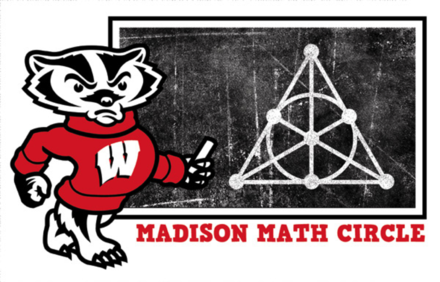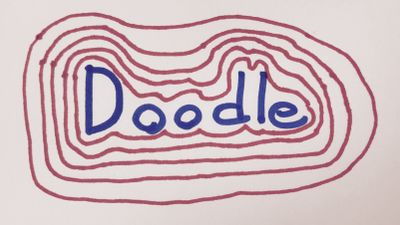Madison Math Circle Abstracts: Difference between revisions
No edit summary |
No edit summary |
||
| Line 1: | Line 1: | ||
[[Image:logo.png|right|440px|link=https://www.math.wisc.edu/wiki/index.php/Madison_Math_Circle]] | [[Image:logo.png|right|440px|link=https://www.math.wisc.edu/wiki/index.php/Madison_Math_Circle]] | ||
[https://www.math.wisc.edu/wiki/index.php/Madison_Math_Circle Main Math Circle Page] | |||
Revision as of 20:59, 25 August 2017
September 18 2017
| Speaker |
| Title: TBD |
|
Abstract |
September 25 2017
| Speaker |
| Title: TBD |
|
Abstract |
October 2 2017
| Speaker |
| Title: TBD |
|
Abstract |
October 9 2017
| Speaker |
| Title: TBD |
|
Abstract |
October 16 2017
| Speaker |
| Title: TBD |
|
Abstract |
October 23 2017
| Speaker |
| Title: TBD |
|
Abstract |
October 30 2017
| Speaker |
| Title: TBD |
|
Abstract |
November 6 2017
| Speaker |
| Title: TBD |
|
Abstract |
November 13 2017
| Speaker |
| Title: TBD |
|
Abstract |
November 20 2017
| Speaker |
| Title: TBD |
|
Abstract |
February 13 2017
| Dima Arinkin |
| Title: Solve it with colors |
|
How many ways are there to place 32 dominoes on a 8x8 chessboard? (Dominoes cover exactly two squares, and should not overlap.) This is a very tough problem with a huge answer: 12,988,816. But suppose we want to only place 31 dominoes and leave two opposite corners empty. It turns out that the question is then almost trivial: such a placement is impossible. (Hint: The reason has to do with black and white squares on the board!) We will look at problems that can be solved by a clever coloring design. |
February 20 2017
| Reese Johnston |
| Title: Knights and Knaves |
|
An ancient Greek philosopher Epimenides famously said "All Cretans are liars". Ignoring for a moment the fact that Epimenides himself was from Crete, what would happen if he was right? How could we get information from people who always lie? Or, worse, what if among these lying "knaves" are some truthful "knights"? How could we tell which is which? Using some tools from logic, we'll explore this and some other questions of the same sort. |
February 27 2017
| Jessica Lin |
| Title: The Mathematics Behind Sound |
|
We will explore the mathematics behind soundwaves. This will include dissecting the structure of soundwaves, understanding why they create certain tones, and discovering how sound cancelling headphones work. If time permits, we may even talk about whether you can "hear the shape of a drum." |
March 6 2017
| Becky Eastham |
| Title: How to Win a Brand New Car and Escape Execution with Probability |
|
We'll learn about some famous paradoxes in probability. Come and have your brain teased by the Monty Hall Problem (will you win a goat or a car?) and the 100 Prisoners Problem (can you and your fellow prisoners come up with a clever strategy to save your lives?). We'll solve these problems and more! |
March 13 2017
| Jim Brunner |
| Title: You and your clones predict the future |
|
We are going to talk about how to predict the future based on the present! Often, we know only things about the probability of the very near future, like which city we are going to be in next week. Luckily, there is a way to use that information to figure not just where we’ll be in two or three weeks, but also what the probability is that we are in some city in a very long time from now. The tool we need is called a Markov Chain. I’ll talk about how a Markov Chain can help us figure out the probability of different events in the future, and how we can clone ourselves in order to figure out how a Markov Chain behaves. |
March 27 2017
| John Wiltshire-Gordon |
| Title: What if seven is zero? |
|
We take as axiomatic the usual laws of arithmetic, along with a new law: 7=0. Evidently, this new law challenges certain widespread intuitions about numbers. Will all of mathematics crumble? |
April 3 2017
| Will Mitchell |
| Title: Math and Fluids |
|
Urination, ship wakes, the movement of ice sheets and glaciers, swimming microorganisms, car engine design, erosion, the circulation of blood, flying insects, flying aircraft, and the origin of the magnetic field of our planet: these topics are all connected through the mathematical and scientific discipline called "fluid mechanics." Let's take a whirlwind (ha, ha) tour through some of these exciting applications and see how math can be used to make sense of the world around us (and within us)! |
High School Meetings
October 17 2016 (JMM)
| Daniel Erman |
| Title: What does math research look like? |
|
Using a concrete problem in combinatorics, I will try to give a feel for what math research looks like. We’ll discuss the various aspects of research including: gathering data, making conjectures, proving special cases, and asking new questions. |
October 24 2016 (West)
| DJ Bruce |
| Title: Shhh, This Message is Secret |
|
gur pbearefgbar bs gur zbqrea jbeyq eribyirf nebhaq orvat noyr gb rnfvyl pbzzhavpngr frpergf, jurgure gubfr frpergf or perqvg pneq ahzoref ba nznmba, grkg zrffntrf ba lbhe vcubar, be frpher tbireazrag nssnvef. va guvf gnyx jr jvyy rkcyber gur zngu haqrecvaavat bhe novyvgl gb qb guvf, naq frr whfg ubj fgheql gung pbearefgbar npghnyyl znl or. |
October 31 2016 (East)
| DJ Bruce |
| Title: Shhh, This Message Is Secret |
|
gur pbearefgbar bs gur zbqrea jbeyq eribyirf nebhaq orvat noyr gb rnfvyl pbzzhavpngr frpergf, jurgure gubfr frpergf or perqvg pneq ahzoref ba nznmba, grkg zrffntrf ba lbhe vcubar, be frpher tbireazrag nssnvef. va guvf gnyx jr jvyy rkcyber gur zngu haqrecvaavat bhe novyvgl gb qb guvf, naq frr whfg ubj fgheql gung pbearefgbar npghnyyl znl or. |
December 5 2016 (JMM)
| Philip Matchett Wood |
| Title: The game of Criss-Cross |
|
Some say that mathematics is the science of patterns, and patterns are everywhere. You can find some remarkable patterns just by drawing lines connecting dots, and that is just what we will do in the game of Criss-Cross! Bring your pencils and be ready to play. |
December 5 2016 (East)
| Uri Andrews |
| Title: How to split an apartment |
|
So you go off to college and after a year or two, you and some of your friends decide to get an apartment together. It'll be a lot of fun living with your best friends. Then move-in day comes, and you realize that everyone wants the room by the kitchen (for easy late-night snacking). You have 4 rooms and 4 people. Surely there must be some way to make everybody happy. People are willing to settle for their second-favorite room instead if maybe they pay a little less rent or do some less chores. How do you navigate this issue to make everybody happy? I'll share a way to do this based on a mathematical theorem which also explains the following fact: If you stir up a cup of hot chocolate, when the liquid has come to rest, some point in the liquid will end up in exactly the same place in the cup as before you stirred it. |
February 13 2017 (East)
| Eva Elduque |
| Title: Pick's Theorem |
|
In this talk, we will work to discover a beautiful formula that allows us to quickly and easily compute the area of a polygon whose vertices are points of a grid. We will prove that this formula works! |
February 20 2017 (JMM)
| Megan Maguire |
| Title: Coloring Maps |
|
Have you ever noticed that in colored maps of the US bordering states are never the same color? That's because it would be super confusing! But how many different colors do we need in order to avoid this? Come find out and learn more cool things about coloring maps. |
March 20 2017 (East)
| DJ Bruce |
| Title: Doodling Daydreams |
|
As a high schooler I occasionally got bored, would zone out, and would doodle on my paper. Often repeatedly tracing around something on my paper creating doodles like this: In this bored state my mind would often wander, and I would wonder about important things like "Will I have a date for prom?" or "What is the cafeteria serving for lunch?", but germane to this talk were my wonderings about, "What’s happening to the shape of this doodle?" It turns out that these idle daydreams and doodles provide a good taste for how mathematicians "do" math. We will start by doodling and asking questions, and then we'll see where these lead us mathematically. |
April 3 2017 (JMM)
| Polly Yu |
| Title: Are we there yet? |
|
When you are told to clean your room, you have to first clean half of it; then half of what's left, and half of what's left, and so on. Seems like you will never be done! In fact, an ancient Greek philosopher, Zeno, used an argument like this to claim that it is impossible to move! Disclaimer: we are not saying that it's impossible to clean your room. What we will do is look at a special case of adding infinitely many numbers together, and use the resulting formula to calculate areas of fractals. |

